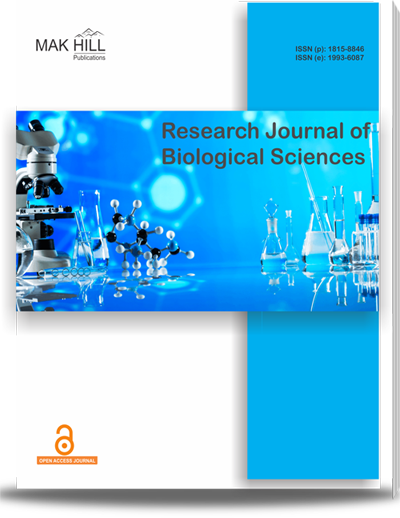
Research Journal of Biological Sciences
ISSN: Online 1993-6087ISSN: Print 1815-8846
Abstract
The Cyclooxygenases (COXs), the key enzymes that convert arachidonic acid to Prostaglandins (Pgs) have been implicated in physiological and pathophysiological functions in the CNS. NSAIDs (Non-Stesoidal Anti-Inflammatory Drugs), COX inhibitors are used largely to treat febrile condition, pain state and for prevention of and therapeutics of many diseases. However, the role of PGs and NSAIDs in the seizure activity has been disputed. The aim of this study was to evaluation the effect of intraperitoneally injection of different doses of Naproxen on PTZ-induced seizure threshold in mice. Mice were divided into 9 groups randomly: the first group received saline normal (ip) (control group); the second group received Carboxymethylcellulose (CMC) 0.25% (ip) (vehicle group) and the next groups received, respectively different doses of Naproxen (5, 10, 20, 40, 60, 80 and 100 mg kg-1 ip) 45 min before determination of seizure threshold induced by PTZ. Results showed that PTZ-induced seizure threshold in control mice was 34.75±1.54 mg kg-1. Intraperitoneal injection of Naproxen showed significant (p<0.05) increase of PTZ-induced seizure threshold in a dose dependently manner compared with control group. According to the results, Naproxen has anticonvulsant effects on mice. Nevertheless, new studies must be carried out in order to determine the beneficial effects of NSAIDs in treatment of epilepsy.
How to cite this article:
Khayatnouri Mirhadi. Anticonvulsant Effect of Naproxen in Mice Induced by PTZ.
DOI: https://doi.org/10.36478/rjbsci.2011.575.584
URL: https://www.makhillpublications.co/view-article/1815-8846/rjbsci.2011.575.584